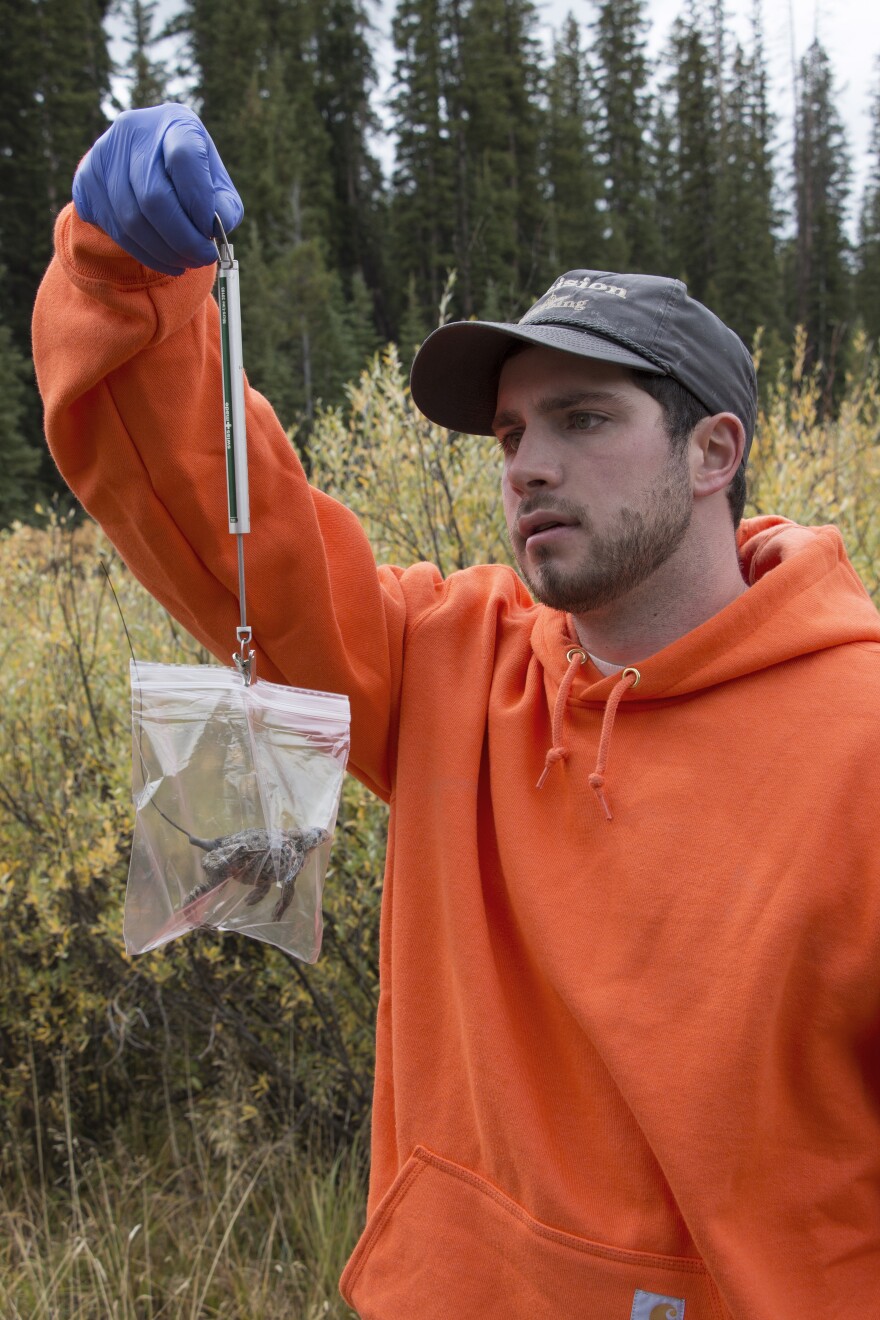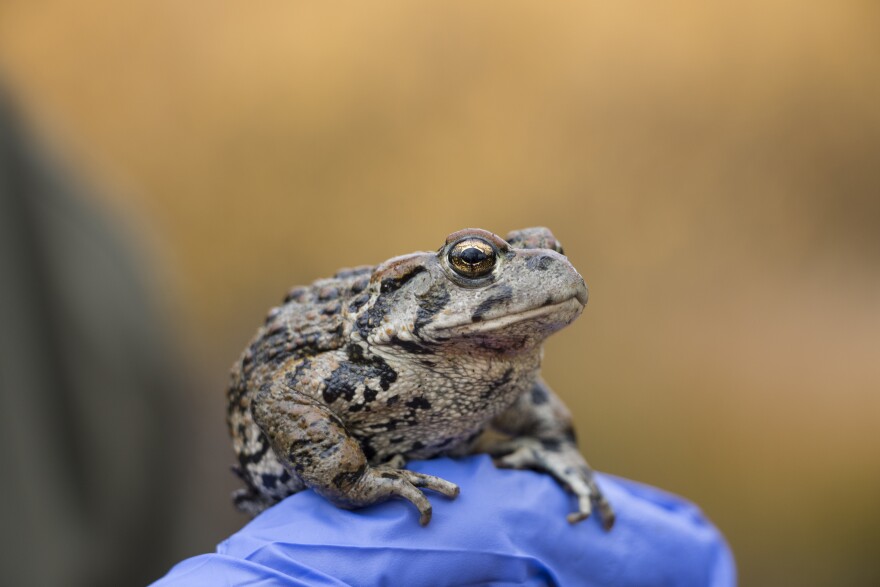Chytrid fungus is a deadly disease that infects amphibians worldwide, and it's considered the worst infectious disease in the history of vertebrates. Once infected, amphibian populations often see drastic declines and sometimes even go extinct.
The boreal toad has a historic range that covered much of Western North America. Today, their range is limited largely due to severe population declines associated with chytrid fungus. The population of toads found near Pinedale, however, has responded to this deadly disease in a unique way.
Gabriel Barrile, a doctoral researcher at the University of Wyoming, studies how this particular population of toads has turned the disease into a chronic condition instead of an immediately life-threatening one.
"[These] toads actually tend to shift which habitat conditions they use after they become infected with the fungus," Barille said. "And this shift in habitat use has been associated with a clearing of the infection."
Barille and his team use radio telemetry, microchips, and field surveys to learn more about the behaviors of these toads.

"Boreal toads are mysterious creatures packed with personality." Barille said. "We hope to prevent further declines of this species by intensively studying boreal toad populations in Western Wyoming, particularly their response to the chytrid fungus."
But Barille said this isn't a universal answer to dealing with the disease.
"Those types of behaviors can also be different between populations of boreal toads and that could also play a role in their susceptibility or vulnerability to the disease, or their ability to fight the disease." he said.
This research could have larger impacts than saving one species of toad. The knowledge gained could have an impact on global amphibian and disease management, Barille said.
"There's a huge push to halt this catastrophic pandemic, and our research aims to inform and contribute to that cause," Barille said.
Barille's research has been ongoing since 2015, and he hopes the project continues after he finishes his degree in 2020.









